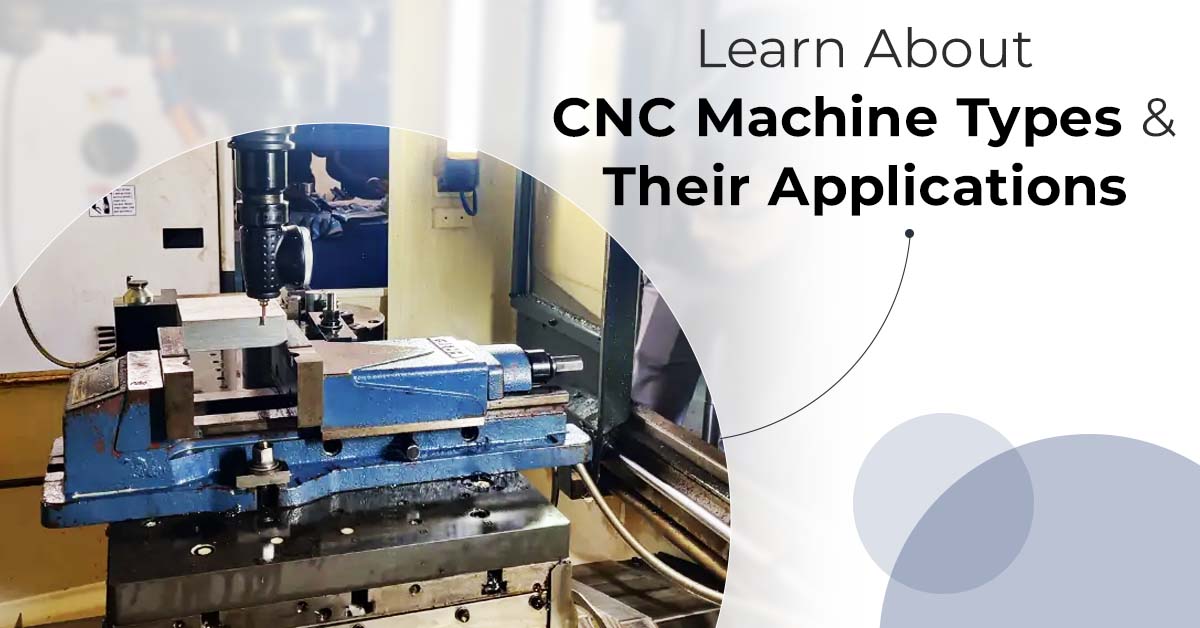 The Computer Numerical Control or CNC machines have revolutionized the way of manufacturing process with accuracy, efficiency, and operation. These machines are designed in the way to operate complicated processes such as cutting, drilling, and shaping with high quality of precision. It is essential to understand that various industries like automotive, aerospace, healthcare, and furniture use this technology to make the components with highest precision. Hence, this blog from Millwright, the best CNCTraining Centre in Coimbatore, helps you to learn about CNC machine types & their applications briefly.
The Computer Numerical Control or CNC machines have revolutionized the way of manufacturing process with accuracy, efficiency, and operation. These machines are designed in the way to operate complicated processes such as cutting, drilling, and shaping with high quality of precision. It is essential to understand that various industries like automotive, aerospace, healthcare, and furniture use this technology to make the components with highest precision. Hence, this blog from Millwright, the best CNCTraining Centre in Coimbatore, helps you to learn about CNC machine types & their applications briefly.
CNC Lathes
CNC lathes find application in manufacturing the parts that are conical and cylindrical. These machines operate by rotating the workpieces with a fixed cutting tool to create the necessary shape by removing the excess material. The CNC lathes play a critical role in the turning, facing, threading, drilling, and knurling operations. The automotive industry uses these machines to produce the parts such as engine, shafts, and gears. Also, the aviation industry uses the machines to produce turbine parts and various other components related to the industry for more precision. On the other hand, the healthcare sector uses the CNC lathes to make orthopaedic implants and surgical tools. In jewellery making, they are used to make symmetrical rings and bracelets. Thus, this machine finds application in various industries as it offers more consistency and effectiveness in mass production.
CNC Milling Machines
Secondly, the CNC milling machines work by removing the material from a fixed workpiece with the help of rotary cutters. These machines can be moved along in many axes around 3-5 typically, to make the complex geometric structures. The CNC milling machines are used mainly for mass production and prototyping as they offer excellent versatility. Hence, these machines find application in various industries such as automotive and aerospace to make components of engine, brackets and frame. In medicine, they are indispensable for producing prosthetic limbs and dental implants. Electronics producers use CNC mills to turn circuit boards and housings, while tool and die manufacturers do so for mold and die manufacturing. The chief benefits of CNC milling machines involve the capability to deal with detailed designs, multi-axis movement to provide enhanced flexibility, and rapid machining that drives production speeds upward.
CNC Routers
CNC routers are utilized for shaping and cutting less rigid materials like wood, plastic, composites, and some metals. These machines are extensively applied in woodworking, signage, and furniture production. The wood industry gains from CNC routers for door carving, furniture, and decorative panels, while the sign and advertising industry utilizes them for cutting 3D signs, letters, and engravings. Acrylic and plastic manufacturing also depend on CNC routers to shape retail display cases and prototypes. They are also used in the automobile industry to produce dashboard panels and trim. CNC routers are appreciated for their capability to cut complex designs with precision, facilitating artistic and creative designs and automated engraving. They also save material and increase efficiency, making them a favorite in sectors requiring precise and artistic manufacturing.
Hybrid CNC Machines
Hybrid CNC machines integrate multiple machining processes into a system, e.g., additive manufacturing (3D printing) with subtractive processes such as milling or laser cutting. Hybrid CNC machines provide advanced features; thus, they are ideal for indies that demand custom and highly accurate parts. The aerospace and defence sectors utilize hybrid CNC machines to manufacture light, intricate metal parts. In contrast, the medical field utilizes them to fabricate personalized prosthetics and implants. The automotive sector utilizes them for quick prototyping of vehicle components. Research and development fields also utilize hybrid CNC technology, which facilitates testing new materials and designs. The most significant benefit of hybrid CNC machines is that they can combine multiple functions, cutting costs and increasing efficiency. They also support quick prototyping by combining additive and subtractive manufacturing methods.
CNC machines are ubiquitous in many industries because they are precise, efficient, and automated. Whether it is a CNC lathe for precise turning, a milling machine for fine shaping, a router for fine cutting, or a hybrid machine for specialized applications, their functions and applications must be understood to maximize production. Learn the right mechanisms for CNC machines from Millwright, the best center for CNC and Mastercam training in Chennai to improvise your skills and stay ahead in the competitive manufacturing industry.